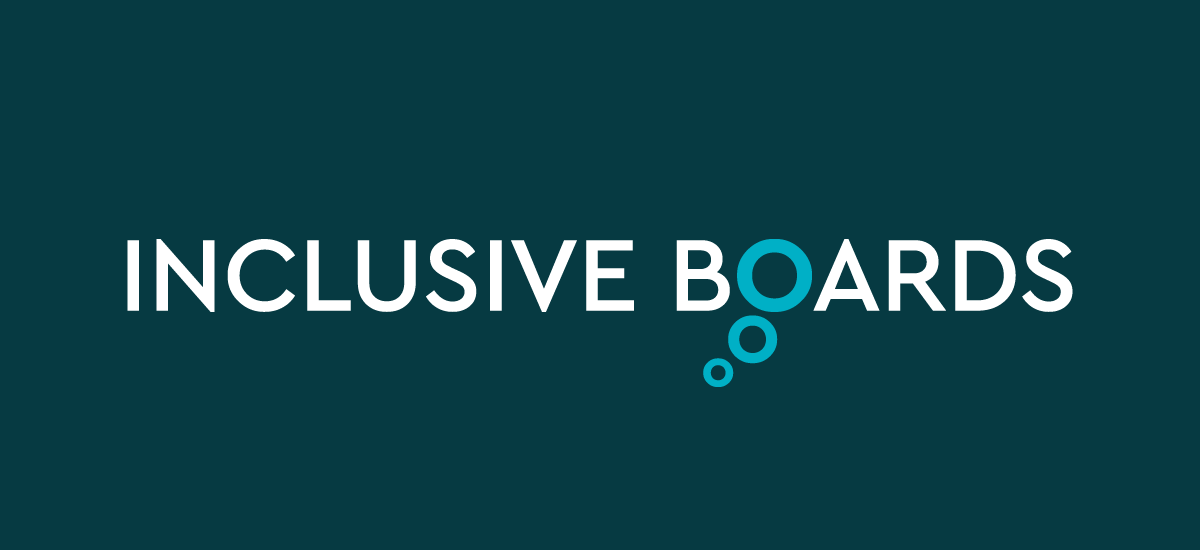 The time has never been more right for Boards of charities, services and organisations to engage in conversations around diversity and inclusion, exploring the benefits of, and the barriers to inclusion.
The time has never been more right for Boards of charities, services and organisations to engage in conversations around diversity and inclusion, exploring the benefits of, and the barriers to inclusion.
It appears to be an urgent need to explore to assist Boards to achieve greater participation from diverse and under-represented groups of people.
Recent media focus on the experiences of two black men in Starbucks heightened the current debate around diversity and intolerance with the CEO reacting fast to show zero tolerance for discriminatory behaviour within his multi-national organisation.
Further media attention has focussed on NHS Boards and the lack of inclusivity, with one senior manager refusing to sit on interview boards until the problem is resoled.
In April 2018, Inclusive Boards launched their annual report into diversity on Charity Boards at the House of Commons. The report and findings were clear: Boards, charity boards in particular, needed to become more inclusive to better represent the breadth of society.
From this report and discussions, it was clear that whilst the benefits of greater inclusivity are recognised and there was a willingness by charities to make these changes, in reality since a previous report in 2016, there had been little actual progress made in the majority of charity boards.
Listening to the challenges faced by charities, it is apparent that there are both explicit and hidden, often unconscious, barriers to inclusion, which need to be identified and addressed. An exploration of why things are the way they are in a safe “no-blame” environment is necessary, and appropriate problem-solving strategies are needed to bring about meaningful change.
Experienced practitioner psychologists use their extensive psychological knowledge, skills, and professional expertise in human behaviour to assist people on boards in recognising barriers such as addressing interpersonal conflict, social pressures, hidden agendas and motivating factors, taboo issues, and managing risk factors.
Through the application of psychological approaches, psychologists are well placed to identify and manage the potential cognitive dissonance, tension and conflict which may result from exposure to a wide variety of differing views, attitudes, perspectives, as well as social and systemic factors preventing change.
Psychologists can facilitate the Board working effectively to successfully challenge and overcome obstacles to inclusion in order to achieve a positive outcome for all concerned.
Psychologists can bring an understanding of individual differences and group processes, as well as tool kits designed to support challenges of change.
By creating a safe place and the language to talk about differences; by identifying blocks in communication, facilitating difficult conversations, nurturing debate and tolerance, and by promoting good open communication, the psychologist can help to develop frameworks to support organisations in acknowledging, capturing and processing issues to achieve greater inclusion on their Boards and throughout the delivery of their charitable aims.
Engaging in conversations around differences and the stumbling blocks to greater inclusivity is the starting point. Exploring questions around ‘Why is it valuable for Boards to be more diverse?’ and showing how decisions are enabled because of additional insight from greater inclusion.
Support and encouragement, top down and bottom up, is also needed to attract more diverse representation onto Boards.
People may feel intimidated by perceptions of Board rooms and fear of not being able to contribute may stop many with relevant skills and experience coming forward.
Empowering and supporting those interested through training and coaching is vital.
It is clear that there is a role for psychologists both as Board members themselves as well as expert advisors and consultants, facilitating Boards in remove barriers which are currently preventing a truly diverse range of people from being on boards, and in facilitating the effective and healthy functioning of boards generally.
To sum up:
- There are barriers to inclusion which affect many services and organisations, as well as Charity Boards that need addressing.
- Boards will thrive on psychological support to explore and better understand what is preventing them from being diverse and inclusive.
- Psychologists are well placed as agents of change to support and contain this challenging and progressive work.
Outcomes:
- Increased diversity and inclusiveness on Boards
- Increased understanding of the true benefits of diversity and inclusion resulting in positive engagement in meaningful change.
- Compliance with inclusion policies and bench marking is achieved!
Association of Psychologists on Boards:
Dr Shungu M’gadzah and Annabel Poate-Joyner are Consultant Psychologists who are senior in their professions and who have founded the Association of Psychologists on Boards to bring together psychologists with specialist interests and the appropriate skill-sets to promote diversity and inclusion and to bring psychological expertise and perspectives in order to advise and contribute positively to the effective functioning of boards of the full range of services and organisations.
Shungu has served on a number of Boards including Chairing the British Psychological Society’s Division of Educational and Child Psychologists as well as being a School Governor in a number of schools. She is also a Non-Executive Director for a social enterprise company providing mental health services to schools. She currently works as a consultant in Local Authorities and is the Director of her own company, Inclusion Psychologists Ltd.
Annabel left the NHS for independent practice in 1998 and is the Director of her own company and psychological consultancy. Annabel has provided psychological supervision, support and consultancy to public and private sector services and organisations, has held long-term external consultancy contracts with the MOD and INTERPOL, and provides specialist Expert Advisor, Occupational Health and Inspection & Audit consultancy to CQC and to police forces nationally.
Annabel has been a School Governor, serves on many British Psychological Society Committees, is Trustee to the charity COPS supporting the families of police officers who lost their lives in the line of duty, and is Secretary of an HPA Polo Club.
Dr. Shungu H. M’gadzah, Consultant Educational Psychologist
Annabel Poate-Joyner, Consultant Clinical Psychologist
Founders, Association of Psychologists on Boards


